SUNDAY PROFILE: Former Mayor Isaac Smith
Liina Flynn
06 February 2021, 7:05 PM
 Former Mayor of Lismore, Isaac Smith.
Former Mayor of Lismore, Isaac Smith.Being in the top job through floods, fires, drought and pandemic wasn’t easy – but that’s what Lismore’s former mayor Isaac Smith has dealt with during the past four years of office.
It’s been one week since Isaac officially resigned as mayor and left Lismore City Council. He’s looking a bit more relaxed as he moves into the next stage of his life as CEO of HART Services, after over 12 years of serving a tumultuous term in public office.
“Being mayor through the biggest flood, fire, pandemic and budget crisis is ridiculous,” Isaac said. “I’ll laugh about it one day hopefully. I was there, I was chosen, I did the best I could - and if you can say that, you have to be happy.”
From his achievements to his disappointments, Isaac talks about his life, the difficulties of trying to get things done on an adversarial council - and Lismore’s future challenges.
Achievements
During his term on Council, Isaac sees some of his achievements as being the creation of the first floating solar farm in Australia, and the first kerbside recycling service.
“Those projects made a huge difference,” Isaac said.
“In the end, my term has been one of recovery from disaster and finding a new foundation for the councillors of the future to build on, fixing two generations of systems that were not keeping up.
“It was about fighting disaster and modernising council – those are both things that won’t be remembered much, but it’s about improving my city for decades to come. I’m ok with that.”
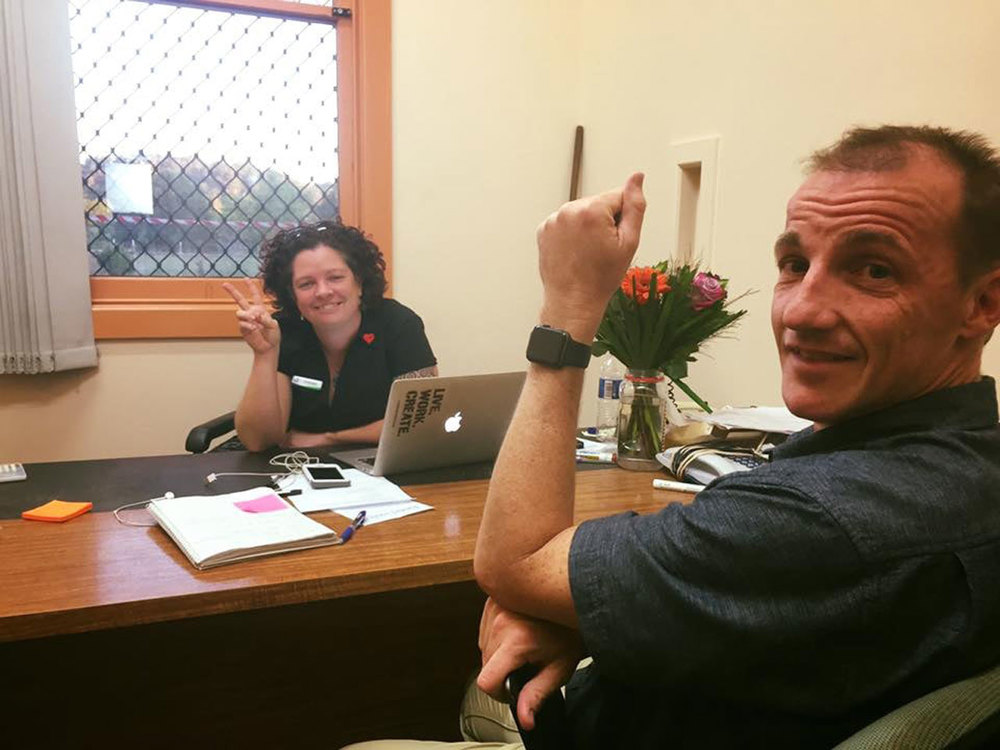
Isaac and Councillor Elly Bird after the 2017 floods at Helping Hands.
Lismore lad
Isaac was born in Lismore and has always lived in the region. He went to Southern Cross University and studied media and communications, then taught at SCU for seven years.
“I enjoyed talking to people and teaching them about websites,” Isaac said. “Unis were fun places then and you could be philosophical not just pump out results. I believe in free education for all. I loved being there, but being a casual academic was hard work.”
Now separated from his wife, Isaac married and started a family young. the couple have four children – one is now studying to be a primary education teacher.
Christian
Isaac grew up in a Christian family and said it’s formed the direction he took in life – and why he has always had a focus on social justice.
“I practice empathy and try and understand where someone is at – not to just judge them,” he said. “On council, I sometime had aggressive angry people come to me demanding answers. I always through this could be the only time this person approaches council in their whole lives.
“I might hear this ten times from different people, but this might be the one time in their life this person has tried to do something. So, I practice empathy and I listen to them and help them.”
Jobs
Isaac’s first job in Lismore at the age of 14 was at Crazy Prices on Molesworth Street, then at the SpotEx surf shop on Magellan Street, the Spar on Wyrallah Road, and he collated newspapers at the Northern Star.
“I spent ten years working in retail, then after I left the university, I started working in community services in disability - assisting people and running small events,” he said. “I worked for Daisi and Social Futures, before I joined council in 2008.
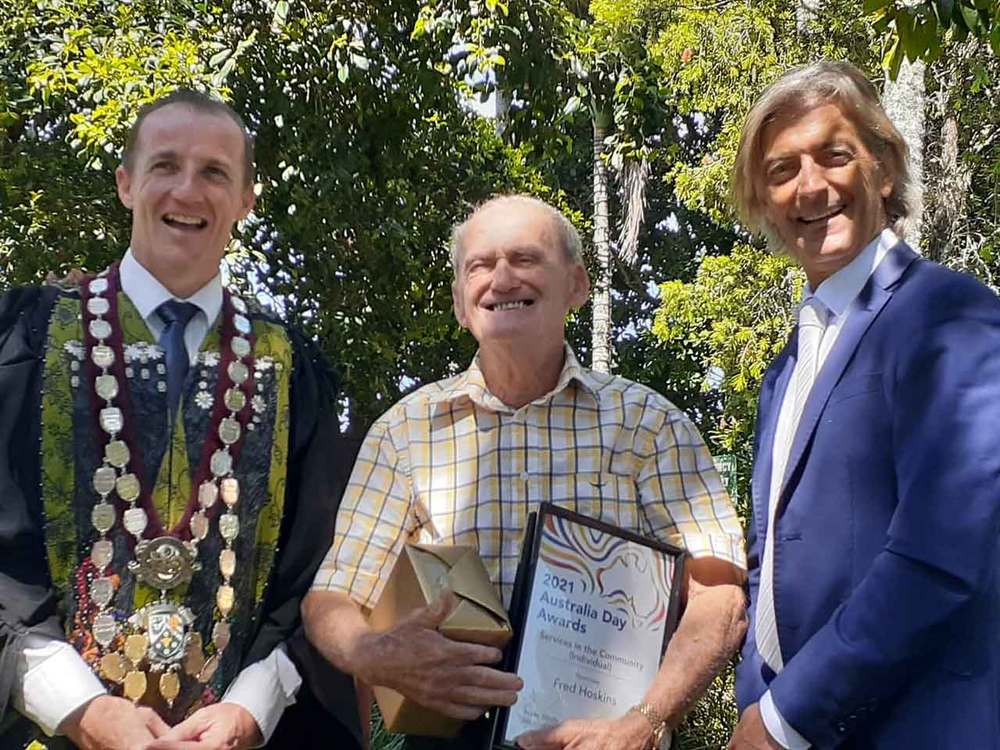
Why politics?
“I wasn’t political and my family wasn’t either – but a couple of friends said to me I should go into politics and I said they should get stuffed, but it planted a seed in my mind. Six months later I thought what does it take to get into politics?
“At the time Jenny Dowell was on Council as a councillor and I spoke to her and she advised me to find a group I could align with – she didn’t push me in any particular direction.
“Even then it was clear that was the only way to get things done - it’s a struggle to be independent. I jumped into the Labor Party and got into Council the next year.
“I was number two on Jenny’s ticket in 2008 and I’ve been on council for 12.5 years. When Jenny retired, I ran for mayor and was popularly elected - which was a special thing when the majority of people in the city vote for you – and that led to a tumultuous term.
Why Labor?
“In 2007, It was John Howards last term. The Tampa crisis and the refugees and social justice issues really upset me.
“In the past, I had voted National, Labor, Green and Liberal – but I wasn’t wedded to anything until I joined the Labor Party.
“I felt comfortable with the local people there who made a difference, but I always felt uncomfortable with the party machine. The Labor party to me was middle ground - not too far to the left and I felt I could so some good there.
Party politics
“Even though I was Labor, I always voted for my own conscience. In my eight years with Jenny on council we often voted together, but often we didn’t - and we never held that against each other.
“I have encouraged that myself - local government is a place you can agree to disagree. Sadly, that’s missing in politics at State and Federal level and its disappearing at local government level.”
Obstacles
“The biggest obstacle I faced in my term was the disunity in councillors. What started as a progressive council became a difficult one to manage.
“Unfortunately, the left and the right joined together and those us in the middle were overrun with issues - and that tied things up and slowed things down continually.
“That was always a big disappointment for me and I still don’t understand how the far right and the far left agreed on all these things, it made no sense to me.
“I did the best I could and we worked together to get the numbers to get things done.
“My biggest disappointment in my term is not having a collaborative group and I think that discontent flows to the public. The greatest negative impact on community was from people who will tear others down and work with someone else to make something bad happen.
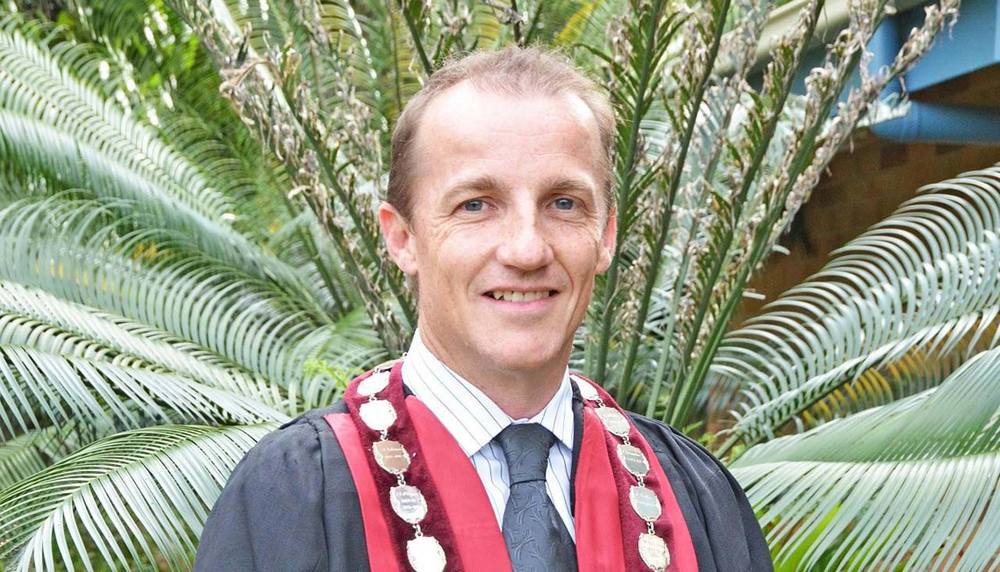
Judgement
“I think we need to be more accepting and curious. There’s too much judgement and people approach issues with strong opinions, backed up by a few people on Facebook who told them they were doing the right thing.
“There’s so much easy access to quick keyboard opinions. In the past you would get more info and make a considered opinion. It was clear to me from the early days on council that councillors came in with their minds made up.
“My hope for the new council is that people come in and want to collaborate and work with each other, because that’s what I didn’t have in my term. I had an adversarial council.”
Personal attacks
“Most people are aware I had to go to court to protect myself and my family from attacks, lies, misinformation and harassment. There will always be people who think it’s appropriate to act like that and they justify their own actions with personal opinions.
“I think people need to be more curious about how and why people made the decisions they did - My vote is just one vote on council - the mayor doesn’t have any secret powers or access.”
Council debt
When Isaac joined Lismore City Council in 2018, Council already had a large debt that had been building up for years. That debt has seen now council make some big changes. So where did the debt come from?
“The debt problem was not caused by the last mayor or general manager,” Isaac said. “In the 60s and 70s, Lismore as a city grew rapidly and rate pegging was locked in.
“But our road network doubled in the next 20 to 30 years and the maintenance and costs doubled too - but we only had 1% indexed rate rises, so we went backwards every year.
Structural changes
“In my term on Council, we addressed that and made structural changes. The changes started in previous general manager Gary Murphy’s term, then finished by Shelley Oldham.
“They were systemic changes 40 years in the making for council.
“Hopefully it will be decades before any councillors have to make the difficult decisions we did again.”
Rates and the SRV
The high cost of Lismore rates are often complained about by local residents and last year Council voted against a proposed rate rise – the Special Rate Variation. It was heralded as a way to make the extra money needed to fix Lismore’s road network.
“It’s been in our plan to do it for a decade because we have assets that need to be maintained – but the SRV didn’t get through and subsequently we have cut services to the city.
“We cut staff and had to reduce things we do - like less mows on lawns and less new roads being built. You can’t supply services with less money.”
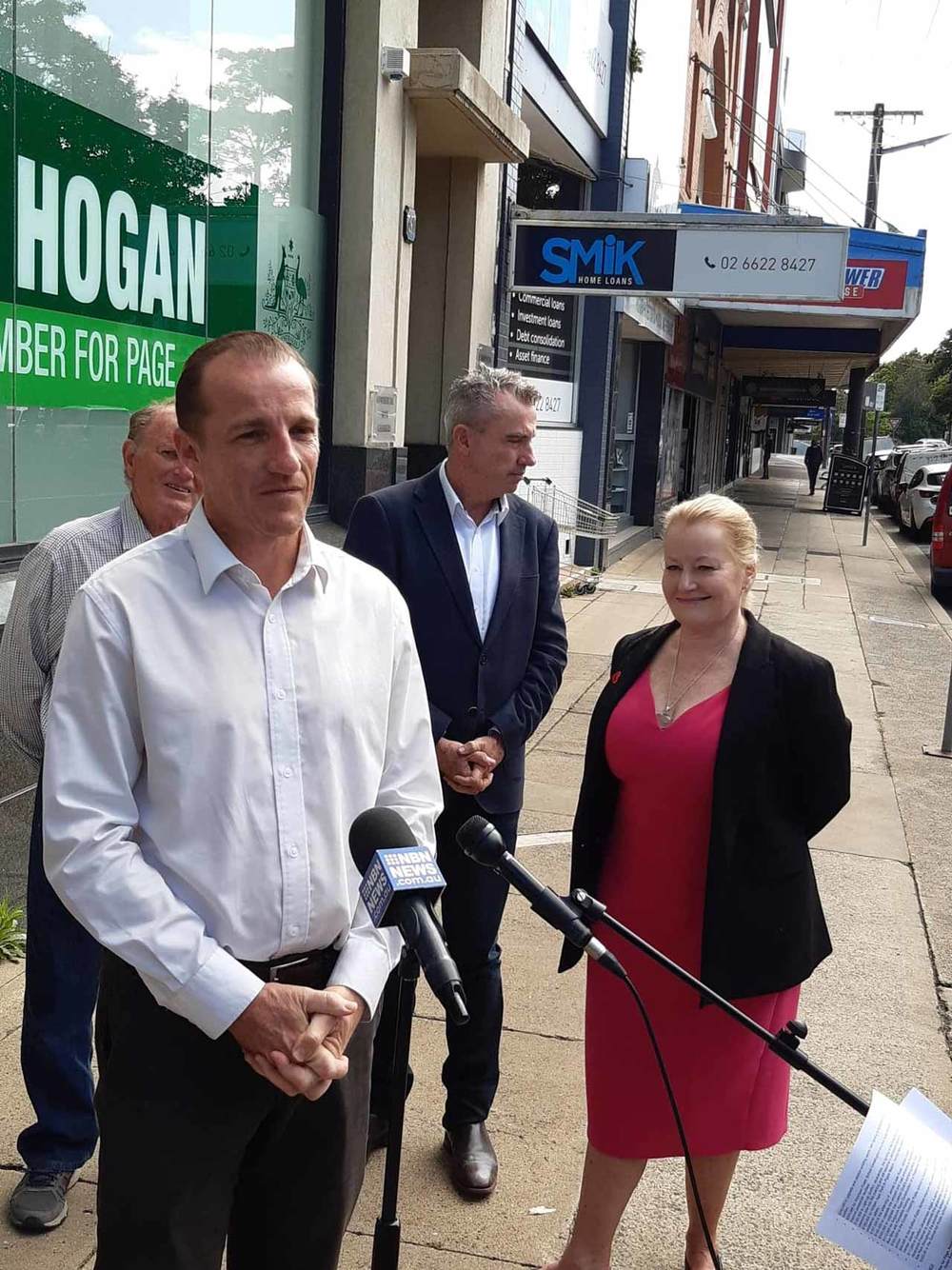
Floods
In 2017, when the Lismore levy overtopped and flooded the whole CBD, it was one of the biggest flood disasters many people in the town had lived through. Isaac had become mayor in late 2016, after Jenny Dowell left council and had only been in the role for six months before the flood arrived.
“It devastated town the way no flood had since the 1989 flood - and we had forgotten what it was like,” Isaac said. “The clean up and mental recovery was long.
“It took us more than three years to get quick release funds from the State Government to fix roads and bridges.
“We had to use what money we had to get it done and hope the flood money would come through. Our community wore at least two million out of the budget to do it.”
“The flood put us in a hole – we were already underfunded and were cutting from the budget every year. Then we had to recruit a new general manager, and Shelley Oldham cam and found a huge debt.
“Since then, we have made changes that will help us in the future and that has perhaps demonised us. People want to find someone to blame, but it is not something you can blame one person for.
“Then, in 2019, the drought was biting across country and it hit us hard then.
“Our dam was dropping and the situation was exacerbated by the fires - they hit us first in our area, then the rest of the country. It was a massive challenge and business is still recovering from it.
Roads and infrastructure
“Most of the complaints I get are about State roads and there is nothing we can do about that. The State Government control the legislation and give us a small amount of money to maintain them.
“We have the second oldest sewer system in NSW - the only one older is Sydney CBD.
“Our sewer system was laid down over a hundred years ago in the CBD and we’ve had to renew a whole storm water and sewer system in our city.
“We’ve just built the South Lismore treatment plant to replace infrastructure and residents are now paying that off.
“People say to me the Ballina rates are cheaper than Lismore. I say yes, they would be because Ballina has been built in the last 20-30 years.
“If you move there now there is no infrastructure to be
built in the next 20 years, so your rates will be low and 40 years from now when it will need to be renewed, those people living there then will then have to pay for it in increased rates.
Goonellabah Sports and Aquatic Centre (GSAC)
Another piece of infrastructure which has brough strong criticism from the community has been the Goonellabah Sports and Aquatic Centre (GSAC)
“GSAC was approved before I started in 2008,” Isaac said. “But it should not have been built. It was not costed or planned well. The business plan wasn’t there and it was costed at a quarter of the end cost. It was always going to lose money and that has now cost council two million dollars a year. It will be cheaper in about four years when that loan bill is paid off.
“It is in the right place though and hitting the right market. People who use the youth programs love it. I had more complaints about it being closed during Covid than anywhere else.”
Lismore Regional Art Gallery
Another polarising piece of infrastructure has been the Lismore Regional Art Gallery.
“We need history, culture and galleries as well as speedway,” Isaac said. “The gallery was built with through grant funding and fundraising. It is well supported and well used and liked.
“More than a third of council budget goes on roads, a third on parks and gardens and planning, administration costs about 25%. Art gallery spending is less than 1% of the budget – and that in turn brings millions into our community and creates an interesting space here.
“It does more for our city than the tiny number of potholes the spending would fill.
“When people say to me, I don’t like this -what they mean is I don’t use it. The Friends of the Gallery raised money to build it and they deserve to have it as much as the city needs speedway or football.”
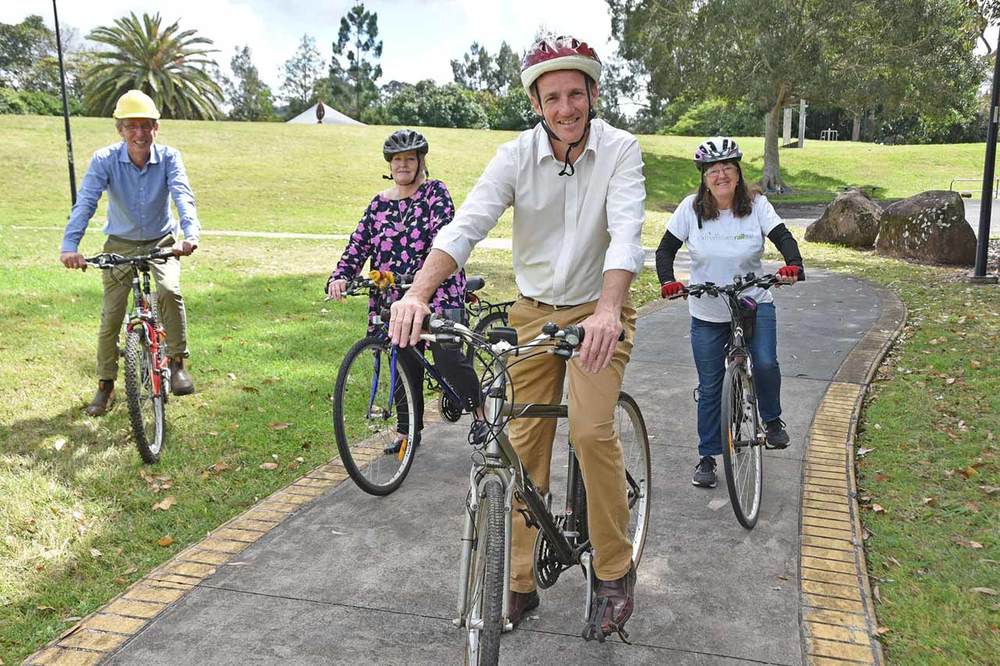
Traumatic
At the time leading up to the flood, Isaac had been working for HART Services and was juggling the role of mayor with his job. In order to focus more on the council role, he resigned from HART but stayed as a casual until the need for more money to pay bills later took him back to working there.
During the flood Isaac said he worked long hours and was exhausted physically and emotionally.
“I had to keep going,” he said. “I was up early doing national media, checking emails, talking to residents, setting up a recovery centre and going to SCU where people were
living, working with relief organisations and the SES - all that on top of council duties.
“One night I’d been at the Uni and the Salvos were feeding people and when I left, my car wouldn’t start and I started weeping. I still remember that – it still affects me.
“There were lots of moment like that in the flood, but I kept going because so much needed to get done.
“Helping Hands really helped and as a city, we did such a good job of helping ourselves that the state government slowed down their relief.
“This was in my first six months in council – and that stress could also have affected other councillors too because the relationships deteriorated. The aggression and animosity between councillors was noticeable and it was evident it wasn’t going to be an easy term.
2021 and future
As Isaac moves into his full time role as CEO of HART Services, he is picking up again from where he left off when Covid hit.
“Just before Covid hit, I told HART I wanted the job and that council elections are coming up and I wasn’t standing again – but then the elections were cancelled due to Covid,” he said.
“HART allowed me to juggle the two jobs, but there was too much work and that wasn’t fair to HART and my career, so I made decision to resign at the end of 2020.
Biggest challenge for future council
“Our biggest challenge is growing,” he said. “More people moving here from capital cities – but the problem is no one wants the growth around them. The irony is that the people who moved here in the 80s and 90s for a better lifestyle are the ones stopping people moving here now.
“To me, the city needs to grow and we need more units and duplexes and townhouses to accommodate the future. If you don’t want that, you have to move to the hills. I understand why people want to stop development - but not wanting it is not a rationale.
Solutions
“We have to find practical solutions to make it work. That is the challenge on the back of Covid. Lismore is going to boom and we need to have services, institutions and a mix of art, culture and sports.
“People will come and work here and we need to meet that more sustainably – so we need more environmental considerations around the use of power and collecting water - but people need to let things happen around them and not just be against everything
Trade offs
“There are always trade offs we do need trees, but we have amazing countryside around us and there are more trees here now than 20 years ago.
“If we chase perfection, we lose sight of the goal. We have to help people change and collaborate.”

